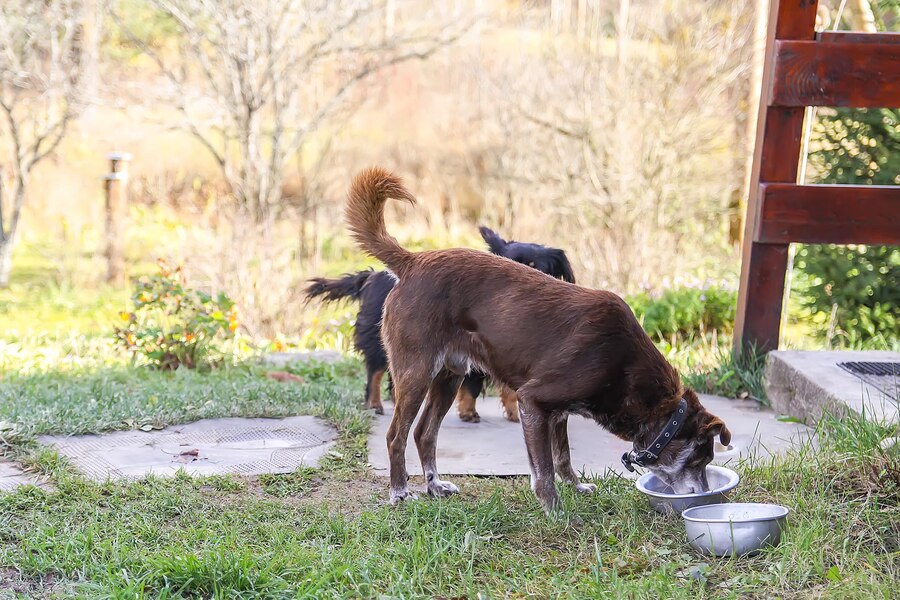Hooves can be safe for dogs but pose risks like splintering. Always supervise your dog when chewing hooves.
Dogs love to chew, and hooves are a popular choice among pet owners. These natural treats are durable and can keep dogs entertained for hours. They help maintain dental health by scraping away plaque and tartar. Despite these benefits, hooves can splinter, causing potential harm to your dog’s mouth, throat, or digestive tract.
Always choose high-quality hooves and monitor your pet closely while they chew. Regular inspections of the hooves for sharp edges can prevent injuries. Ensuring your dog has access to plenty of fresh water is also important, as chewing can make them thirsty. Always prioritize your dog’s safety and well-being.
What Are Hooves?
Hooves are the hard parts on the feet of animals like cows and horses. Dogs enjoy chewing them. They are strong and can last a long time. Hooves can keep dogs busy and happy.
Types Of Hooves
There are different types of hooves available for dogs. Cow hooves are common and easy to find. Horse hooves can be a bit tougher. Pigs also have hooves that dogs can chew. Each type has its own benefits for dogs.
Nutritional Content
Hooves are not just for chewing. They have some nutrients too. They contain protein which is good for muscles. Some hooves have minerals like calcium. These help keep bones strong.
Benefits Of Hooves
Hooves can help keep your dog’s teeth clean. They scrape off tartar and plaque. This helps prevent gum disease. Strong teeth are vital for your dog’s health.
Dental Health
Chewing on hooves promotes good dental health. Dogs love the taste and texture. It keeps their teeth strong and clean. This reduces bad breath too.
Mental Stimulation
Hooves provide mental stimulation for dogs. Chewing keeps their minds active. It can reduce boredom and anxiety. Dogs feel happy and relaxed after chewing.
Risks Of Hooves
Hooves can break into small pieces. These pieces can block a dog’s throat. A dog might choke on them. Always watch your dog when they chew on hooves. This can prevent choking.
Dogs can swallow small hoof pieces. These pieces can cause stomach problems. They might get stuck in the intestines. This can be very dangerous for your dog. Sometimes, surgery is needed to remove them.
Alternatives To Hooves
Hooves pose a risk for dogs due to potential splintering and dental damage. Consider safer alternatives like rubber chew toys or dental sticks. These options provide enjoyable chewing without the hazards associated with hooves.
Natural Chews
Natural chews are a safer choice for dogs. Bully sticks are popular and digestible. They are also low in fat and high in protein. Sweet potato chews provide fiber and vitamins. They are also gentle on the stomach. Rawhide is another option, but it must be monitored. Always choose rawhide that is free from chemicals. Antlers are long-lasting and full of nutrients. They are also less likely to splinter.
Synthetic Options
Synthetic chews are durable and safe. Nylon bones are strong and last long. They are also good for dental health. Rubber toys like KONGs can be filled with treats. They are fun and keep dogs busy. Dental chews help clean teeth and freshen breath. Always choose chews that are appropriate for your dog’s size and chewing strength.
Choosing Safe Chews
Chews should be the right size for your dog. Small dogs need smaller chews. Big dogs need bigger chews. The texture of the chew matters too. Soft chews are better for puppies. Hard chews are good for adult dogs. Always check if the chew is too hard. If it is, it can break teeth.
Chews should be durable to last long. Some chews break down fast. Others stay strong for weeks. Choose chews that do not break into small pieces. Small pieces can be a choking hazard. Always supervise your dog while chewing. This ensures they stay safe and healthy.
Veterinarian Opinions
Veterinarians weigh in on the safety of hooves for dogs. Opinions vary, with some experts concerned about potential dental damage and others endorsing them for mental stimulation. Proper supervision and choosing the right type of hoof can mitigate risks.
Expert Recommendations
Many veterinarians agree that hooves can be dangerous for dogs. Hooves are very hard and can break a dog’s teeth. They can also splinter and cause injuries to the mouth, throat, or stomach. Some vets suggest safer alternatives like rubber toys or specially designed dog chews.
Case Studies
Several case studies show the risks of giving hooves to dogs. One study noted many dogs required emergency surgery after swallowing hoof pieces. Another study found that dogs often suffer from broken teeth due to chewing on hooves. These studies highlight the potential dangers and support the advice to avoid hooves.
Another Post: Can Dogs Eat Sauerkraut
FAQ
Are Hooves Safe For Dogs To Chew?
Hooves can be safe but may splinter, causing harm. Always supervise and choose high-quality, natural hooves.
What Are The Benefits Of Hooves For Dogs?
Hooves provide dental health benefits by reducing plaque. They also offer mental stimulation and satisfy natural chewing instincts.
Can Hooves Cause Dental Issues In Dogs?
Yes, hooves can be very hard and may crack teeth. Monitor your dog and consult your vet for alternatives.
Conclusion
Hooves can be safe for dogs if chosen carefully and monitored. Always select high-quality, natural hooves for your pet. Supervise your dog while they chew to prevent any choking hazards. Consult your vet to ensure hooves are suitable for your dog’s specific needs.
Prioritize your dog’s safety and well-being.

